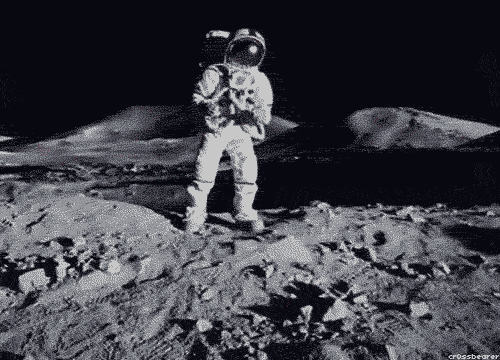-
Hey, guest user. Hope you're enjoying NeoGAF! Have you considered registering for an account? Come join us and add your take to the daily discourse.
You are using an out of date browser. It may not display this or other websites correctly.
You should upgrade or use an alternative browser.
You should upgrade or use an alternative browser.
NASA finds evidence of life-supporting conditions on Saturns moon Enceladus
- Thread starter GK86
- Start date
- Status
- Not open for further replies.
the connection between worlds is made by water.
calm down, constantine.
sandkiller
Member
Was the site already up before?
Is this related to today´s conference:
https://www.nasa.gov/specials/ocean-worlds/#banner
Is this related to today´s conference:
https://www.nasa.gov/specials/ocean-worlds/#banner
LookAtMeGo
Member
Nooice. Exciting times lately.
Dreams-Visions
Member
Galapagos rift?
Is that where the Kaiju will emerge from?
Is that where the Kaiju will emerge from?
Hidden One
Member
Wonder if there's fish people
Huw_Dawson
Member
Basically they have found hydrogen gas being ejected from Enceladus, and they have noticed similar plumes of water or similar being ejected from Europa at a similar hotspots.
In terms of Enceladus, this finding means that we now know it has similar building blocks that support life in our own deep, sunless oceans.
In terms of Enceladus, this finding means that we now know it has similar building blocks that support life in our own deep, sunless oceans.
Watching now.
What did I miss so far?
Cool.
What did I miss so far?
Basically they have found hydrogen gas being ejected from Enceladus, and they have noticed similar plumes of water or similar being ejected from Europa at a similar hotspots.
In terms of Enceladus, this finding means that we now know it has similar building blocks that support life in our own deep, sunless oceans.
Cool.
WeAreStarStuff
Member
I wish we could just give 90% of our military budget to NASA.
Rest of the article here.
Two veteran NASA missions are providing new details about icy, ocean-bearing moons of Jupiter and Saturn, further heightening the scientific interest of these and other "ocean worlds" in our solar system and beyond. The findings are presented in papers published Thursday by researchers with NASA's Cassini mission to Saturn and Hubble Space Telescope.
In the papers, Cassini scientists announce that a form of chemical energy that life can feed on appears to exist on Saturn's moon Enceladus, and Hubble researchers report additional evidence of plumes erupting from Jupiter's moon Europa.
"This is the closest we've come, so far, to identifying a place with some of the ingredients needed for a habitable environment," said Thomas Zurbuchen, associate administrator for NASA's Science Mission Directorate at Headquarters in Washington. "These results demonstrate the interconnected nature of NASA's science missions that are getting us closer to answering whether we are indeed alone or not."
The paper from researchers with the Cassini mission, published in the journal Science, indicates hydrogen gas, which could potentially provide a chemical energy source for life, is pouring into the subsurface ocean of Enceladus from hydrothermal activity on the seafloor.
The presence of ample hydrogen in the moon's ocean means that microbes - if any exist there - could use it to obtain energy by combining the hydrogen with carbon dioxide dissolved in the water. This chemical reaction, known as "methanogenesis" because it produces methane as a byproduct, is at the root of the tree of life on Earth, and could even have been critical to the origin of life on our planet.
Life as we know it requires three primary ingredients: liquid water; a source of energy for metabolism; and the right chemical ingredients, primarily carbon, hydrogen, nitrogen, oxygen, phosphorus and sulfur. With this finding, Cassini has shown that Enceladus - a small, icy moon a billion miles farther from the sun than Earth - has nearly all of these ingredients for habitability. Cassini has not yet shown phosphorus and sulfur are present in the ocean, but scientists suspect them to be, since the rocky core of Enceladus is thought to be chemically similar to meteorites that contain the two elements.
Insane Metal
Member
This is so cool. Microbial life is basically confirmed at this point, at least on Enceladus. Probably on Europa too.
super-heated plasma
Member
This is so cool. Microbial life is basically confirmed at this point, at least on Enceladus. Probably on Europa too.
That has not been confirmed. Just the possibility of it.
That has not been confirmed. Just the possibility of it.
yeah but it's like Black Holes in the late 80's, science pointed towards them existing. and they are there.
everything in the current research points at microbial life in enceladus..
connect the dots
TheRealTalker
Banned
Now we just hope for the ability of chemical evolution occurring there is order to have microbial life
that or other planet seeding before the planet froze
that or other planet seeding before the planet froze
Which dots? I'm not seeing it. There's no lightning, like in Urey Miller, no UV light that penetrates that deep, either you believe these vents create bacteria, or they should have arrived before the crust froze over.yeah but it's like Black Holes in the late 80's, science pointed towards them existing. and they are there.
everything in the current research points at microbial life in enceladus..
connect the dots
Which, without knowing that much about Enceladus, I'm assuming happened very early in its life.
Insane Metal
Member
That has not been confirmed. Just the possibility of it.
Yes, what I wanted to say is that possibility is really high, so at least for me, it's basically confirmed.
vonStirlitz
Unconfirmed Member
So, its possibly riddled with microbes? Meaning the first human to visit catches 1001 new diseases?
Netherscourge
Banned
WhateverItTakes
Banned
So, its possibly riddled with microbes? Meaning the first human to visit catches 1001 new diseases?
You mean the first human to visit is blessed with symbiotic power-enhancers.
Wonder if there's fish people
Half man half fish probably looks something like this.

CrimzonSamurai
Member
So, its possibly riddled with microbes? Meaning the first human to visit catches 1001 new diseases?
They could always be dextro based like the quarians and turians in Mass Effect and therefore couldn't infect us.
We should go find out.
Razorback
Member
Yes, what I wanted to say is that possibility is really high, so at least for me, it's basically confirmed.
Science still has no theory for the origin of life. There's no way of measuring if the possibility of finding it elsewhere is high or not.
CrimzonSamurai
Member
Science still has no theory for the origin of life. There's no way of measuring if the possibility of finding it elsewhere is high or not.
There's an equation for the probability, at least for intelligent life, but unfortunately you need to find at least 1 other civilization before you can plug that specific variable in.
I told my teacher math was useless.
vonStirlitz
Unconfirmed Member
Is that how Shepherd got it on with Tali without getting space herpes?They could always be dextro based like the quarians and turians in Mass Effect and therefore couldn't infect us.
We should go find out.
TheRealTalker
Banned
There's an equation for the probability, at least for intelligent life, but unfortunately you need to find at least 1 other civilization before you can plug that specific variable in.
I told my teacher math was useless.
yes for probabilities and what not with our limited scope and understanding but for chemical compounds turning into biological ones is unknown to us
hence why I for one believe that planetary seeding would be a more likely cause to propagate microbial life
old manatee
Banned
I don't even want to find aliens anymore. We're going to find Donald Trump's home planet out there, and it will be just crawling with billions of Donald Trumps, just rutting in the mud with other Donald Trumps, their bellies swollen with little Donald Trumps that will eventually eat their way out. No news is good news in 2017.
TheRealTalker
Banned
I don't even want to find aliens anymore. We're going to find Donald Trump's home planet out there, and it will be just crawling with billions of Donald Trumps, just rutting in the mud with other Donald Trumps, their bellies swollen with little Donald Trumps that will eventually eat their way out. No news is good news in 2017.
I vividly pictured that
thanks
Well done.The whole Enceladus?
Henchmen21
Banned
Why do I want to keep pronouncing it like Enchilada?
- Status
- Not open for further replies.




